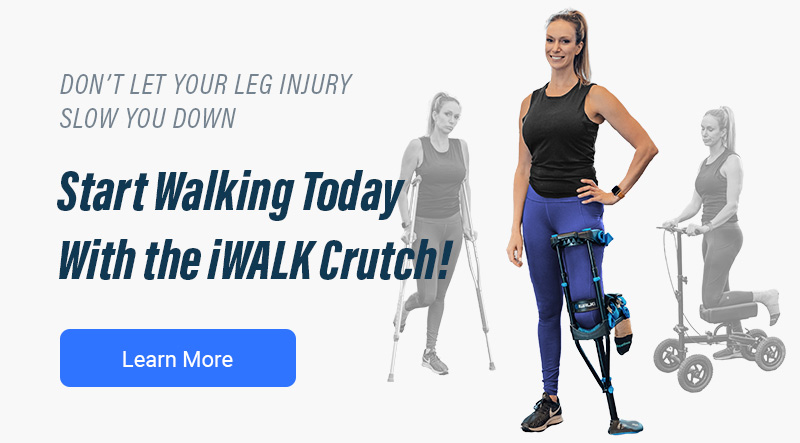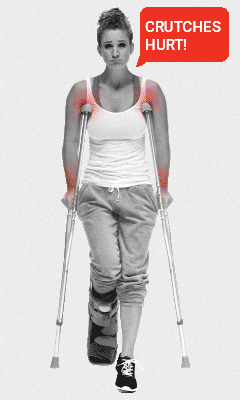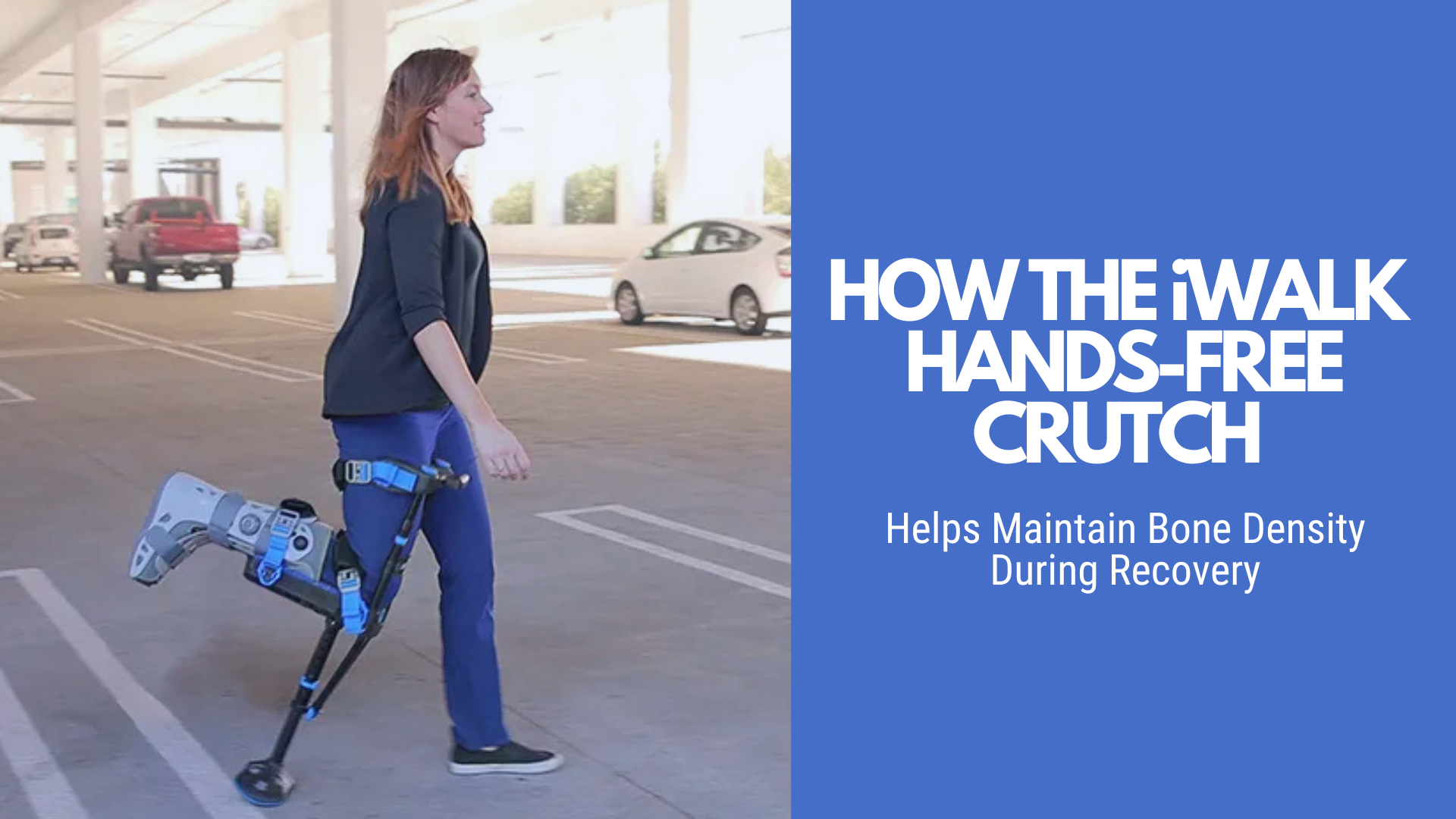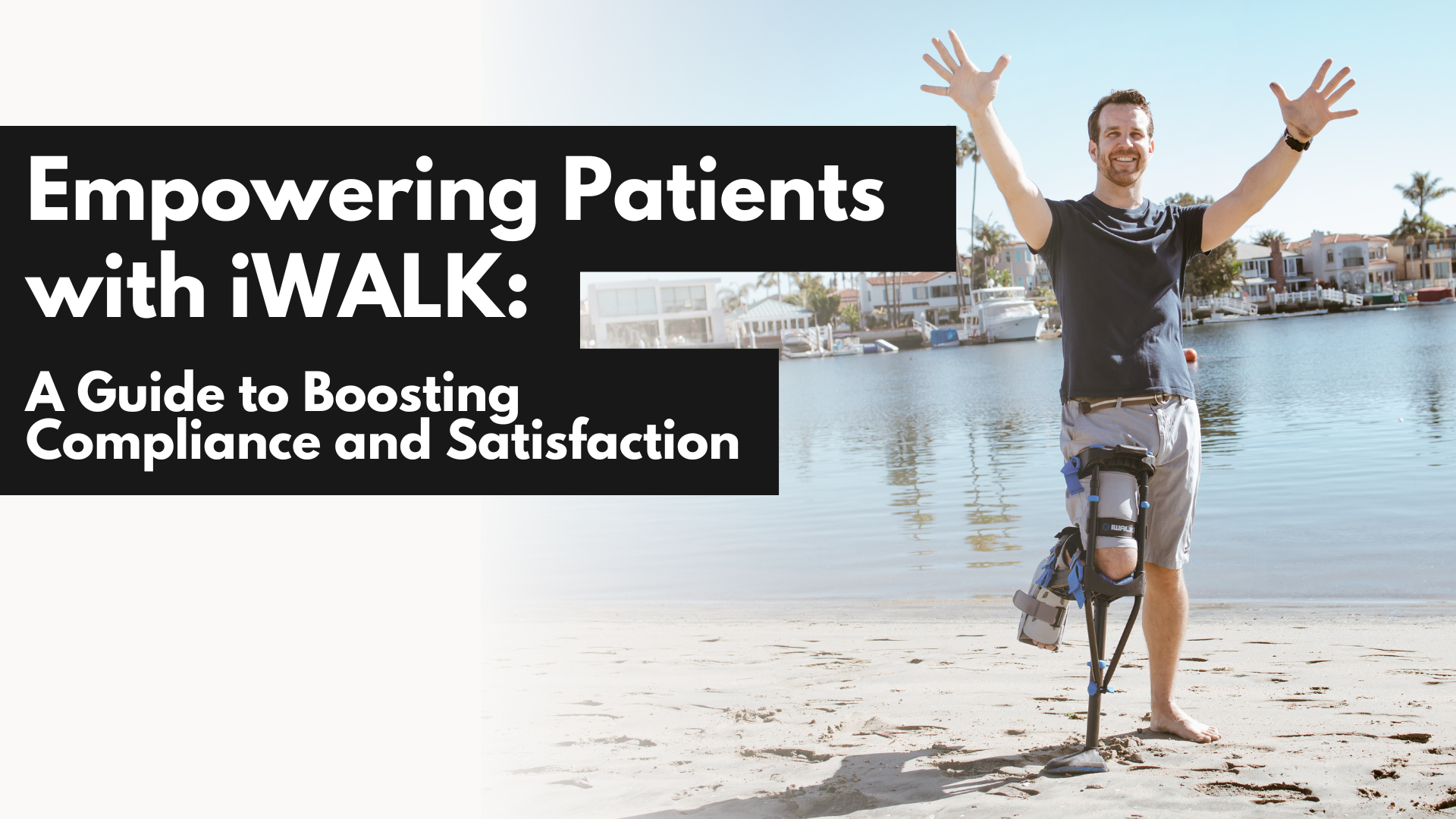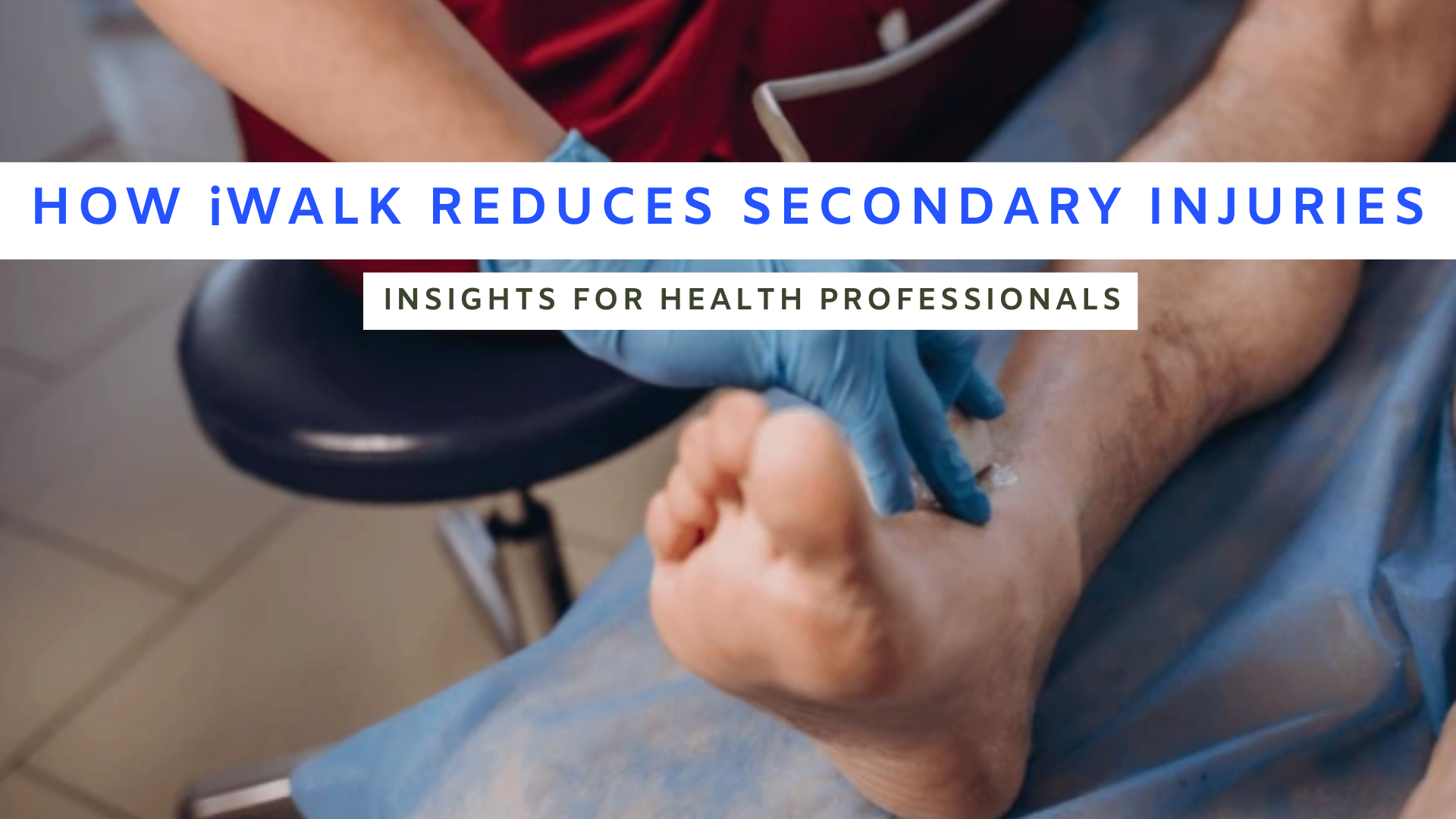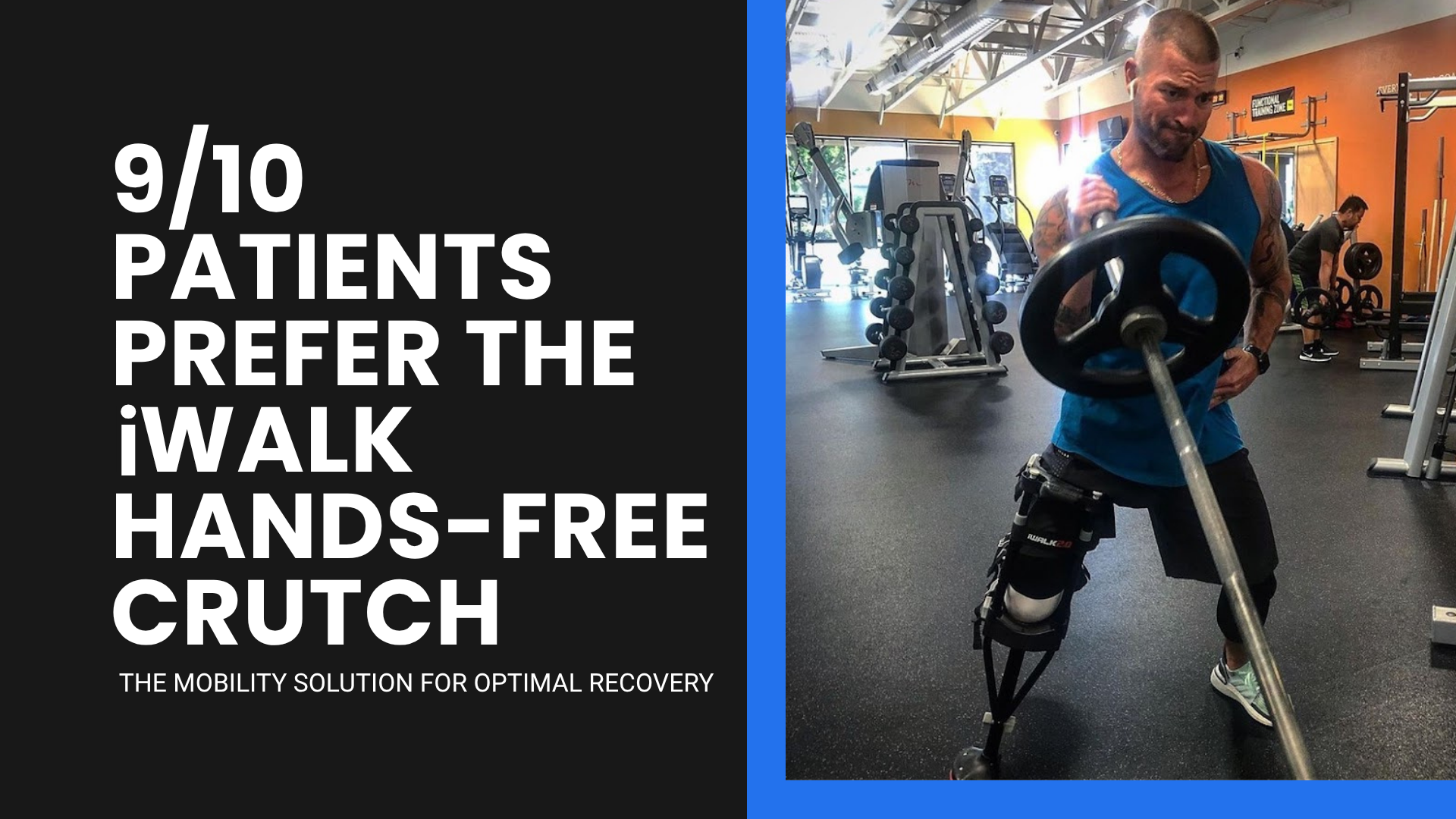Recovering from an injury can be mentally challenging. While physical healing is crucial, your mental and emotional well-being plays a significant role in your overall recovery process. One of the best ways to stay positive during a period of non-weight bearing (NWB) is to maintain as much independence as possible. The iWALK crutch is an excellent tool to help you stay mobile and independent while your body heals.
Maintaining Independence
When you’re faced with an injury, the loss of independence can feel overwhelming. Simple tasks like getting out of bed, cooking, or carrying groceries can become daunting. Traditional crutches or knee scooters often require the use of your hands, making it impossible to carry things or perform everyday activities with ease. This loss of independence can be emotionally draining, adding frustration to an already challenging recovery period.
The iWALK crutch, however, offers a hands-free solution. By allowing you to walk naturally, you can continue with your day-to-day activities without needing assistance. Whether it’s carrying items, going grocery shopping, or just moving around the house, the iWALK helps you maintain a sense of independence. This independence can do wonders for your mental health, reducing feelings of frustration and helplessness that can sometimes come with recovery.
Boosting Mental Health
A positive mindset plays a major role in your recovery process. When you feel independent, you are more likely to remain motivated and optimistic throughout your healing. This psychological benefit is vital for individuals going through a non-weight bearing period, where the temptation to focus on limitations can be overwhelming.
Studies have shown that patients who feel empowered to perform their daily activities are more likely to experience better recovery outcomes. By using the iWALK crutch, you regain a sense of autonomy that improves your emotional state. When you can continue doing tasks like cooking meals or cleaning your house, it fosters a sense of normalcy and control.
A Sense of Accomplishment
During recovery, setting small goals can help you maintain your motivation and confidence. The iWALK crutch allows you to achieve these goals with greater ease. For example, getting through the day without needing help or carrying groceries on your own are accomplishments that can greatly boost your morale. Every successful task completed during recovery, however small, can help you stay positive and focused on the bigger picture.
Building Confidence for the Future
As you continue your recovery, maintaining your independence will help you rebuild confidence in your abilities. The iWALK crutch ensures that you won’t feel isolated or dependent on others, making the healing process smoother both physically and emotionally. The more you rely on your iWALK, the more confident you’ll feel in your ability to handle the next stages of your recovery.
In conclusion, staying independent during recovery isn’t just about regaining physical strength—it’s about maintaining your mental and emotional well-being. The iWALK crutch can be a powerful tool in this process, allowing you to maintain a sense of autonomy, boost your mental health, and build confidence as you heal.

